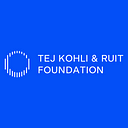From 7 Years Blind To a Lifetime of Vision
According to a report by Nepal’s Department of Health Services, the three major barriers to improving the rate of cataract surgery are:
- The cost of surgery
- The issue of accessibility
- Fear of surgery
The same report also suggests Nepal’s most underserved province is the Madhesh Province. 50-year-old Rambilash Majhi, unfortunately, fits into this criteria.
Rambilash comes from the Dalit community, a historically marginalised community that is often referred to as “the untouchables” in the rigid caste system of Nepal and the Indian subcontinent. He represents one of Nepal’s most marginalised communities and lives in a squatter (landless) community, and is too poor to afford eye care.
The nearest eye hospital is almost seventy kilometres from his home and his family has neither the resources or the time to take him there. When a Tej Kohli & Ruit Foundation screening camp arrived in his village, he was too afraid to visit the camp because some villagers had told him the doctors would remove his eyes.
Thankfully, some other local villagers informed the visiting Tej Kohli & Ruit Foundation screening team about one blind patient who was unwilling to come to the camp. A little bit of counseling was all it took to convince Rambilash to undertake the life-changing surgery.
And as of 31st January, 2022, Rambilash is cured of blindness, and can see clearly after living with blindness for seven long years.
After screening 112 patients on a cold winters day in the Terai region of Nepal, the screening team reached Rambilash’s house at around 4 PM. There, he was sat in front of a fire for warmth. His feet were covered with ash — which didn’t seem to bother him. The screening team checked his eyes and confirmed he was living with cataracts and needed to go urgent surgery — or he could become permanently blind.
Blindness comes a huge economic and social cost — this was yet again proven true by Rambilash’s story. He lived alone in a small hut which he shared with the family goat. He had no clothes to spare, and no one to talk to. He sat alone, his wide eyes unable to see anyone, or anything that was happening around him.
Thankfully for Rambilash, his daughter hadn’t given up on him.
“Our mother died at a young age. He didn’t remarry, and dedicated his life caring for me and my sister. I am paying back for that, and me and my husband moved to his village to care for him. Had he abandoned us in our childhood, I wouldn’t have cared for him”. Rambilash’s daughter Rajkumari shares with us.
This is very lucky for Rambilash, because in many homes in Nepal, daughters do not care for their elderly parents for many reasons. And even if they are taken care of, blind people are treated as a burden.
Leaving her children in the care of her neighbours, Rajkumari accompanied her father to Janakpur, where her father was to be treated by the Tej Kohli & Ruit Foundation.
The next day, Dr Ashish Bohara from Shri Janaki Eye Hospital, a partner hospital of the Tej Kohli & Ruit Foundation in the Madhesh Province operates on Rambilash. Dr Bohara skillfully removed his cataract and inserted an intraocular eye lenses before patching him up. The entire procedure was complete within 15 minutes.
The next morning, Rambilash and Rajkumari are pensive — unsure what the outcome is going to be. Rajkumari slowly guides her father to the post-op area — the last time he is going to need assistance to see.
Dr Ashish gently removes the patches, and Rambilash slowly opens his eyes. He is amazed that he can see again, and is very happy to recognize his daughter. He gets up from the bench, and moves around freely within the hospital area. He is unwilling to sit down — after all he has gained his sight and mobility after seven long years.
Just before departing, Rambilash tells us he looks forward to seeing his grandchildren, and more importantly to return to work. In his heyday, Rambilash used to go to India to work, and bring home an income for his family. While he says he is too old to go to India now, he is sure he will find some work in the nearby field and help his daughter’s family with the income he earns.
Throughout 2021 and 2022, the Tej Kohli & Ruit Foundation has cured more than 27,000 people of needless blindness in Nepal, Bhutan and Ghana, with a special focus on such marginalized communities, where needless blindness is pushing families further into poverty.
By helping families like Rambilash’s, the Tej Kohli & Ruit Foundations aims to help communities combat extreme poverty, and contribute to the number one United Nations Sustainable Development Goal of ending extreme poverty everywhere — one pair of eyes at a time, and only resting after curing half a million people.
For more information on our co-founder Tej Kohli as a philanthropist visit tejkohliruit.com and to read more of his views go to his personal blog.
To read about Tej Kohli as an investor and technologist visit Kohli Ventures.
Find out more about Tej Kohli: Tej Kohli the technologist investing in human triumph, Tej Kohli the philanthropist trying to cure the developing world of cataracts and Tej Kohli the London tycoon with a generous streak.
| Follow: Twitter | Instagram | LinkedIn | Facebook | YouTube |
